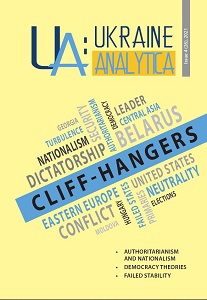Authoritarianism and Nationalism Challenges in Post-Soviet Space: Is there a Correlation between them?
Authoritarianism and Nationalism Challenges in Post-Soviet Space: Is there a Correlation between them?
Author(s): Olga BrusylovskaSubject(s): Crowd Psychology: Mass phenomena and political interactions, Nationalism Studies, Peace and Conflict Studies
Published by: PIC Promotion of the Intercultural Cooperation
Summary/Abstract: Political regimes in the former Soviet republics have evolved towards authoritarianism and vice versa. Latvia, Lithuania, Estonia, and Ukraine became democratic; later – Georgia and Moldova; Azerbaijan and Armenia are semi-authoritarian; Russia, Belarus, and Kyrgyzstan are authoritarian; Turkmenistan and Uzbekistan became neo-totalitarian, with Kazakhstan and Tajikistan following them. In this article the author will try to answer the questions as to whether the main form of manifestation of nationalist contradictions in the republics of the former USSR is political confrontation, and if nationalist tendencies increase with the growth of authoritarian tendencies. The study found that there are fewer ethno-nationalist conflicts in Central Asian countries than in their more “democratic” neighbours; conflicts in autocracies are more likely to occur within the ethnic majority.
Journal: Ukraine Analytica
- Issue Year: 7/2021
- Issue No: 04 (26)
- Page Range: 11-20
- Page Count: 10
- Language: English

